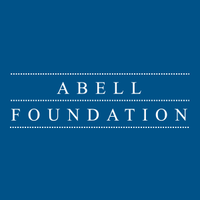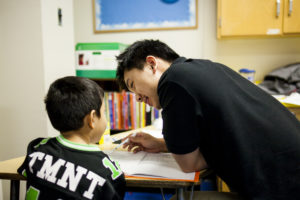 As school systems across the country grapple with how to address Covid-related learning loss, The Abell Foundation recently released a report that centers tutoring as a powerful tool for addressing the widening literacy gap. The report, which focuses on the tutoring landscape within Baltimore City, shines a spotlight on the potential of evidence-based tutoring programs to deliver strong outcomes for students struggling with reading. High-quality tutoring programs are shown to be one of the most effective interventions for struggling learners, and should play a critical role as school districts in Baltimore and beyond aim to bring all young students up to grade level reading standards.
As school systems across the country grapple with how to address Covid-related learning loss, The Abell Foundation recently released a report that centers tutoring as a powerful tool for addressing the widening literacy gap. The report, which focuses on the tutoring landscape within Baltimore City, shines a spotlight on the potential of evidence-based tutoring programs to deliver strong outcomes for students struggling with reading. High-quality tutoring programs are shown to be one of the most effective interventions for struggling learners, and should play a critical role as school districts in Baltimore and beyond aim to bring all young students up to grade level reading standards.
The report calls for a tutoring “Marshall Plan” in Baltimore City to address the 18,000 elementary school students who are currently reading below grade level. The report encourages evidence-based tutoring programs like the Literacy Lab to scale services to reach more students, while also making a strong case for increased federal, state, and philanthropic dollars to support these efforts.

The report highlights best practices of the most effective elementary literacy tutoring programs, all of which are exemplified by the Literacy Lab. These include:
- Using a phonetic approach that emphasizes phonemic awareness, phonics, comprehension, fluency, and vocabulary
- Utilizing “paid volunteers” (i.e., AmeriCorps members paid a living stipend for working full-time)
- Providing services during the instructional day
- Professional development and in-service training, plus ongoing monitoring and coaching
- Tutors maintain close contact with classroom teachers, to discuss progress of students, and also collaborate closely with supervisors and other tutors
The Literacy Lab was also the only organization highlighted in the report that provides both daily sessions (5 days a week) and one-on-one tutoring. Both high program dosage and one-on-one tutoring have shown to be among the most effective literacy tutoring models. Additionally, the Literacy Lab was highlighted for its role in contributing to the teacher pipeline in Baltimore City, as many of our tutors go on to careers in teaching and education.
At the Literacy Lab, we feel the urgency of our work now more than ever. The pandemic has exposed and exacerbated deep inequities in our education system that have existed for decades. We know that individualized, evidence-based tutoring was already necessary for struggling readers prior to the pandemic and is even more important now, as many students have fallen further behind.
We hear the calls from experts, leaders, and stakeholders throughout the education community and are actively scaling our programs to be able to reach more of our youngest learners in the years to come. As we face the daunting task of addressing Covid-related learning loss, we know that high-quality, evidence-based tutoring will be an essential piece of a successful recovery.